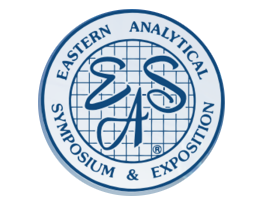One-Day Course:
Wednesday, Nov. 15; 8:30am – 5:00pm
Dr. Dale Purcell, Chemical Microscopy, LLC, West Lafayette, IN
Dr. Brooke Kammrath, University of New Haven, West Haven, CT
COURSE DESCRIPTION
Microspectroscopy is a unified combination of microscopy and spectroscopy for microanalysis. Every aspect of microspectroscopy requires the understanding and application of the fundamental principles of microscopy and spectroscopy. In this intensive one-day course, we concentrate on the fundamental understanding and application of the microscope in acquiring high quality spectral data. Microscopy plays a critically important role in selecting a sample for analysis and defining the microscopic area for which to be analyzed. The relationship between absorbance and illumination is dependent on the optical characteristics of the specimen (diffraction, dispersion, refraction, and reflection) and the optical characteristics of the microscope.
WHO SHOULD ATTEND
This course will benefit analysts, managers, regulators, educators and researchers, who perform analysis, develop methods, review and evaluate data, or purchase instruments and equipment.
TOPICS
- The Microscope as the Optical Bench
a. Illumination (Transmission/Reflection)
b. Field Mask
c. Condenser
d. Sample
e. Objective
f. Field Mask
g. Oculars
h. Spectrometer/Detector - Sample Derived Method of Analysis
a. Transmission
b. Attenuated Total Reflection
c. Reflection/Absorption
d. Diffuse Reflection
e. Specular Reflection - Sample Preparation for Microscopy
a. Sample Isolation
b. Sectioning/Flattening/mini-KBr disks
c. Sealed Cells/Compression Cells - Optical Factors in Sample Preparation
a. Reflection
b. Refraction
c. Scattering
d. Interference Fringes
ABOUT THE INSTRUCTORS
Dale K. Purcell, Ph.D., has over 22 years of experience related to analyses of materials often on the order of milligram or less quantities in regulated laboratory setting of cGMP, FDA, ISO, EPA and DEA. He has expertise in a wide-range of light and electron microscopy and FT-IR microspectroscopy, Raman microspectroscopy, UV-visible microspectroscopy, and their applications. Dr. Purcell previously worked at SSCI, LLC as group lead for their Chemical Microscopy and Microanalysis team. His research interests include thermomicroscopy and polymorphisms, glass delamination, identification of unknown foreign particulate materials, and efficient analytical microspectroscopy methods
Brooke W. Kammrath, Ph.D., ABC-GKE is a Professor of Forensic Science at the University of New Haven with a varied research agenda that includes the uniting of microscopy with spectroscopy, the identification and characterization of microscopic samples of forensic interest, the statistical analysis of trace, pattern and impression evidence, and investigations into the significance of physical evidence. Dr. Kammrath is also the Assistant Director of the Henry C. Lee Institute of Forensic Science, which links scholars, researchers, students, forensic scientists, law enforcement, the legal community, and professional practitioners in many fields to address the scientific and social issues confronting forensic science and the criminal justice system throughout the world. Additionally, she works as a consulting criminalist, where she is a qualified expert in both state and federal courts. Dr. Kammrath is the co-editor of the two-volume book Portable Spectroscopy and Spectrometry and the co-author of the book Blood Traces. She has also co-authored 2 laboratory manuals, 8 book chapters, 20 journal articles, 1 encyclopedia article, and over 100 professional conference presentations.

